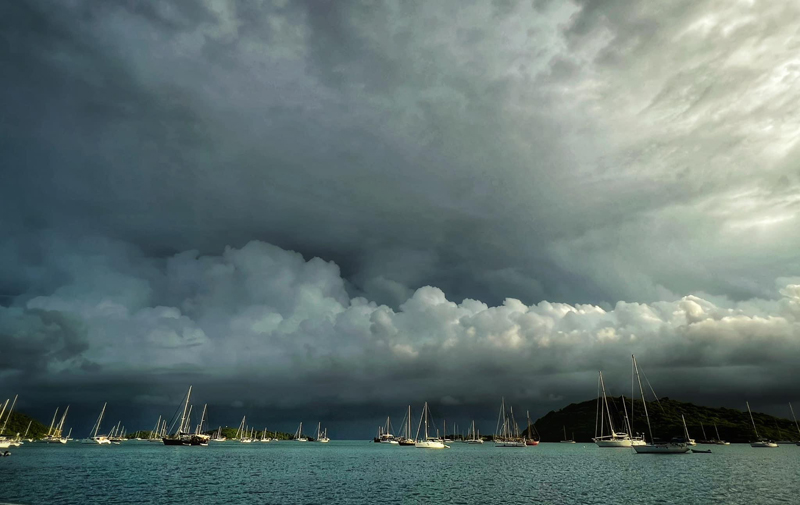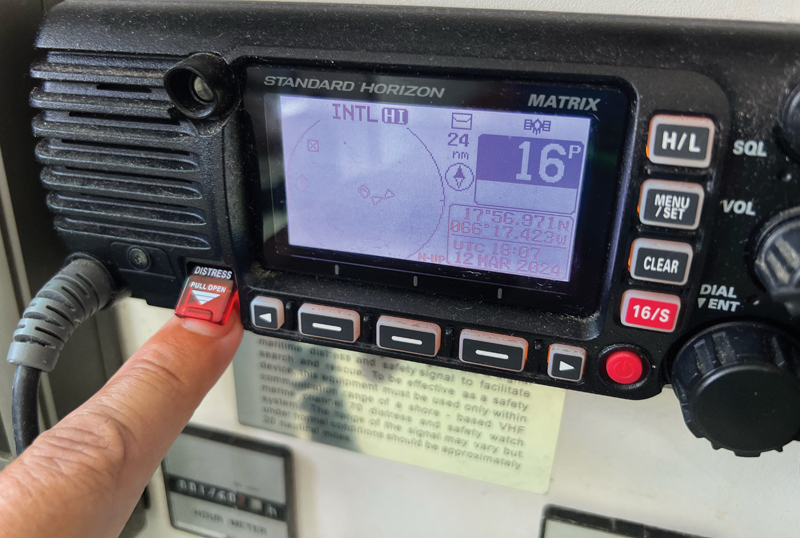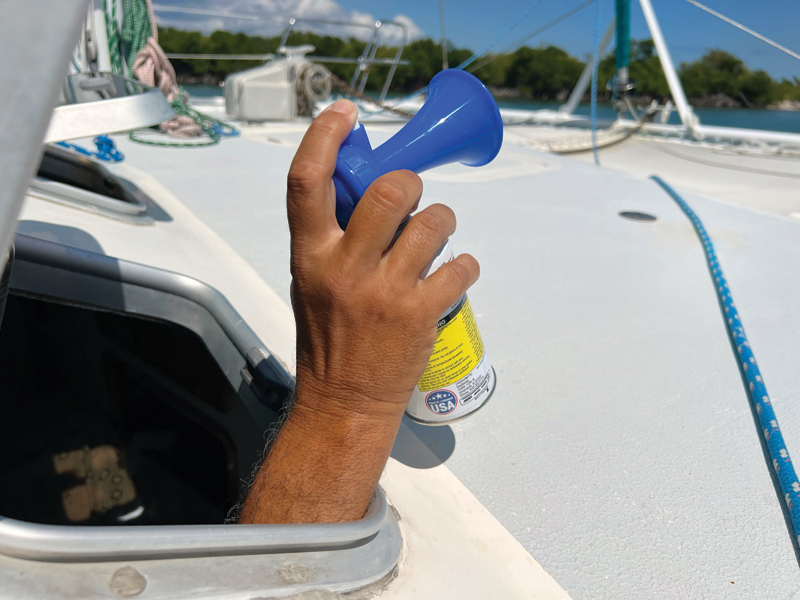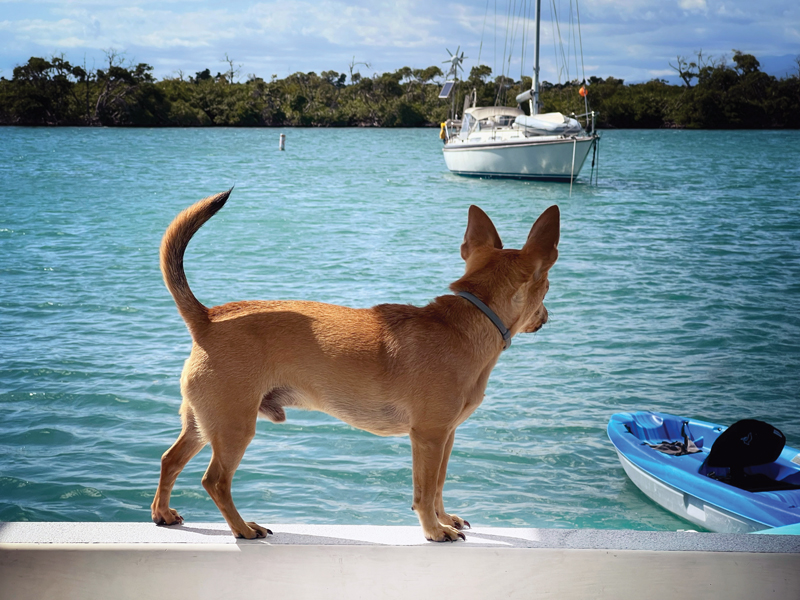Safety tips on avoiding trouble spots and deterring unwanted visitors
News of the horrific crimes committed against the crew of Simplicity in Grenada shocked and saddened every corner of the cruising community. Sailors started thinking more about safety and wondered what they can do to feel safer, where to go and not to go, and how they might handle a similar situation.

What happened to Ralph Hendry and Kathy Brandel on their catamaran Simplicity was a random act of violence and a tragic case of wrong place, wrong time. Escaped prisoners in Grenada boarded their boat on a mooring ball in a busy, safe harbor. While the investigation is ongoing, evidence points to the three men attacking the couple, throwing them overboard, and leaving the country on their boat. The men were caught, but the bodies of the couple have not been found. Sadly, this case is no different than a drunk driver running a red light and taking your life while you drive to the store for groceries. To be clear, there was nothing Simplicity could have done differently to change what happened.
Now that safety and security are on the front page and on sailors’ minds, it’s a good time to look at what we can and can’t do to feel safer at sea.
Safety: the more you know
Avoiding trouble spots is your best weapon. How can you know which places are the ones to avoid? Arm yourself with information. There are some fabulous online tools that sailors can and should check regularly as they travel around. The Caribbean Safety and Security Net (CSSN) (safetyandsecuritynet.org) is top of the list. CSSN’s mission is to collect and share accurate data about crimes against yachts in the Caribbean. Jamie and Behan Gifford of Cruising Totem point their coaching clients to CSSN all the time.
“We are so lucky to have such a thoughtfully managed resource with so much context, and no hyperbole,” says Behan from their boat in Mexico.

CSSN doesn’t tell you where to go and where not to go. They simply report crime statistics to promote awareness and help crews better prepare and make independent decisions. They also collaborate with Noonsite and No Foreign Land (NFL) to reach cruisers on multiple platforms.
“Noonsite and NFL do a good job. And don’t forget local Facebook groups,” suggests Jamie. “You can find one for just about every cruising area. You can ask questions there or just keyword search things like theft or crime.” Caribbean Navigator is another solid Facebook group with helpful information. Remember to look for facts, not opinions.
Deterrence
You are no more or less at risk of being a victim of crime while sailing around than you are while living on land. That said, there are some steps you can take to make your boat less likely to be boarded. It has nothing to do with what kind of boat you sail. Criminals are not known to be deep thinkers. They are opportunists; they’re looking for the easiest boat. Focus on scaring off criminals rather than confronting intruders which can quickly escalate to violence.
A universally simple addition is a set of motion sensor lights. They’re affordable and easy to install. Many run on small solar cells. They can be moved and positioned as needed around your cockpit or aft deck. If a thief notices that your boat lights up when movement is detected, hopefully they will skip your boat.

Another cheap and easy tool is an air horn. Many sailors have one buried deep in a locker, but consider keeping one where you sleep. It’s a quick and easy way to make the boats around you take notice.
It’s also important to know how to use your VHF radio and actually use it. Do you know how to use the DSC button? Do you know what channel the harbor you’re anchored in monitors? Dinghy around to your neighbors, introduce yourself, and ask. And yes, keep the VHF on at night. Even when you have the volume down, you will still hear a DSC distress call loud and clear. If you’re new to cruising and need a primer on VHF radios, check out the course offered by The Boat Galley (products.theboatgalley.com/products/vhf-course) or All About Marine Radio by BoatUS (boatus.org/marine-radio).
Finally, there’s the age-old deterrence of a loud dog. Dogs are a huge commitment when cruising and not one to take lightly or just for security, but a toothy noise-maker would certainly make an opportunistic criminal think twice about climbing aboard your boat. If you have a friendly Golden Retriever who wags his tail at everyone, well then you may be out of luck.

Defense
If deterrence doesn’t work and you find someone on your boat who should not be there, then what? There is the never-ending American debate about guns, which we won’t attempt to solve here. But know that you can easily have your own gun turned against you, changing a bad situation into a deadly one. Also, most countries require you to declare and often hand over weapons when you arrive. They keep them until you clear out.
Pepper spray is legal, and it works. There is a lot of talk about using insect repellents to spray an attacker, but field tests show that these are not effective. Pepper spray works and gives you the time you need to get away and/or get help.
Sounding an alarm, lighting up your boat, or getting away have proven to keep sailors safer than confrontation. Statistically, trying in any capacity to fight an intruder almost always ends badly for the sailor.
“Don’t turn petty theft into a loss of life,” Jamie warns.
Good People
If we all believed the click-bait cycle of bad news, we might never leave our beds. The truth is that the world is full of good people, and hopefully you can surround yourself with them wherever you go.
“Don’t think of people you meet as ‘other.’ They are your fellow humans. Connecting with them will build comfort and enrich your life,” Behan tells me between coaching calls with cruisers all around the world. “Make friends where you are. Get to know your anchor neighbors, and get to know people on shore. Invite people over, and take the time to talk with them. If you invest in connecting with people, they will invest in your safety and security.”
The world is full of good people and bad people, no matter where you go, so sail on and sail safe.
by Cindy Wallach
About the Author: Longtime SpinSheet columnist Cindy Wallach is cruising the Caribbean with her family and two dogs aboard their St. Francis 44 catamaran Majestic, which is for sale. Learn more at majesticstfrancis44forsale.com.




